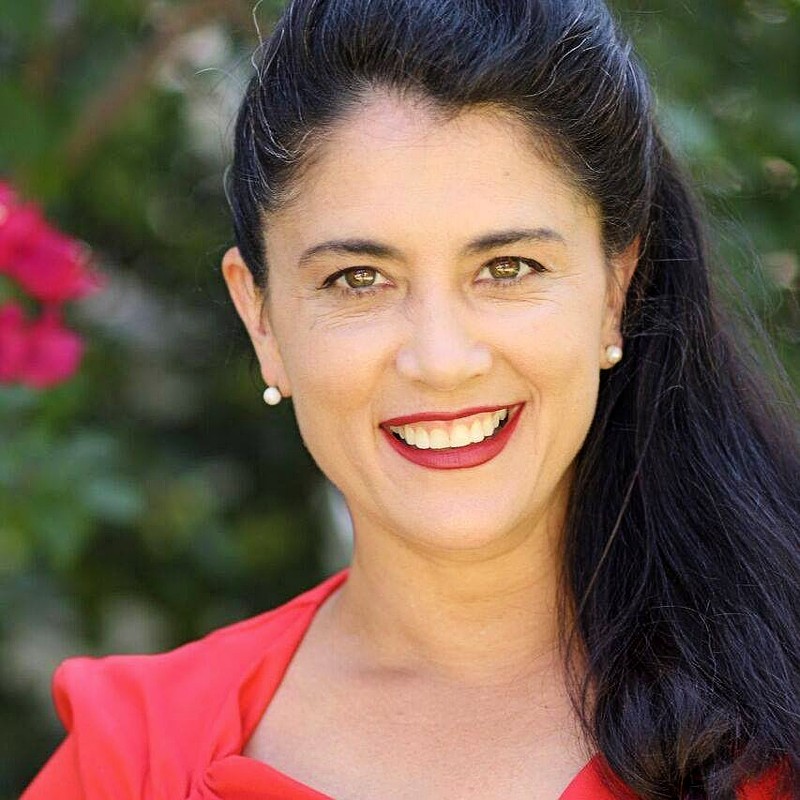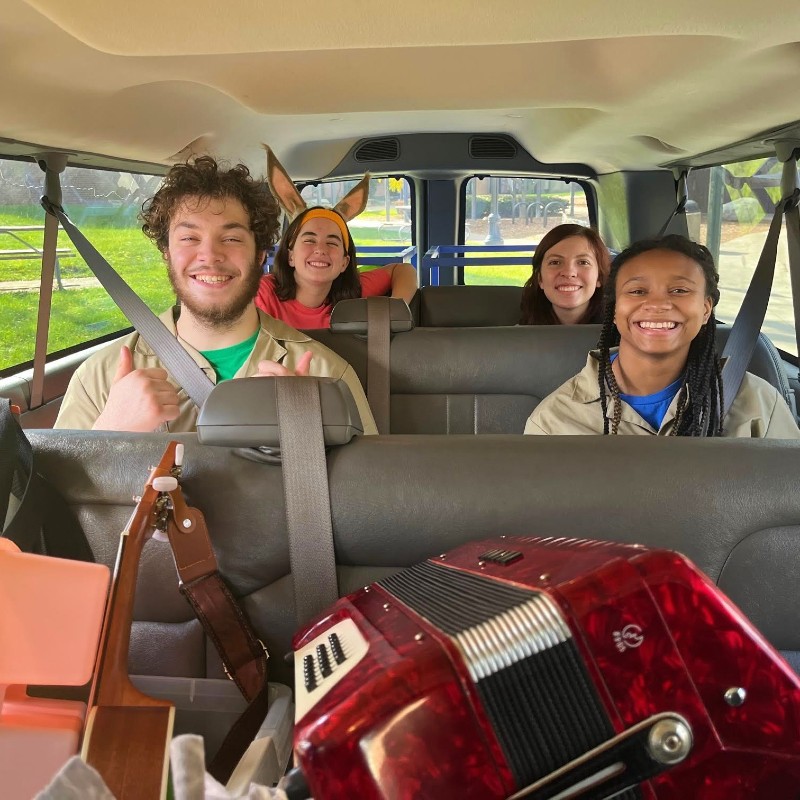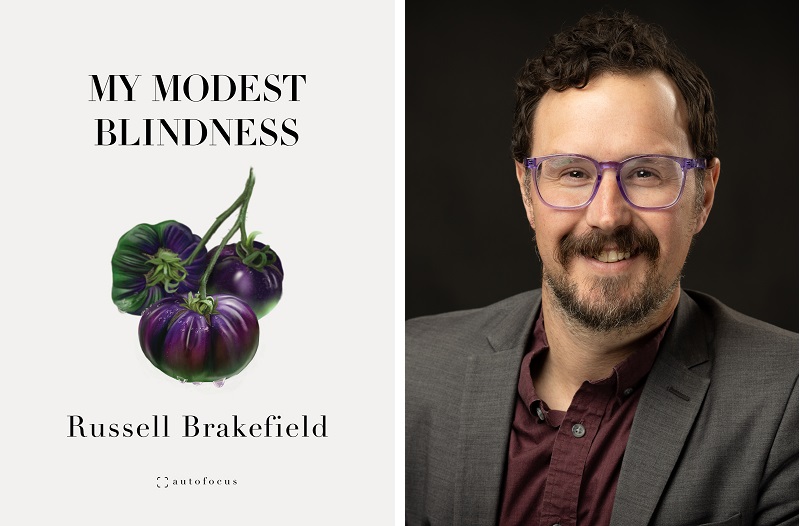Who Has What: Connections Between College Students and a Visiting Professor Lead to Scandals in Kiley Reid’s New Novel, “Come and Get It”

Kiley Reid’s sophomore novel, Come and Get It, centers on the lives of college students, mostly juniors, seniors, and one super senior, plus a visiting professor. What starts out as a job for a resident assistant and a place to live for the three students in the suite next door gradually and unexpectedly escalates into several related scandals.
Reid, an assistant professor at the University of Michigan, is debuting Come and Get It during a January 30 event at the Ann Arbor District Library’s downtown location. Hosted by AADL and Literati Bookstore, it features Reid in conversation with Austin Channing Brown and doubles as the publication date of her new book.
With this book following her first novel, Such a Fun Age, which was the 2023 Washtenaw Read book, Reid reinforces her expertise in writing plot-driven adult fiction full of sharp insights into characters, their choices, race, materialism, and the very human emotion of humiliation. Reid’s situational humor in Come and Get It also brings laugh-out-loud moments via student pranks and misunderstandings that are both cringey and hilarious.
At the start of Come and Get It, Millie Cousins is returning to the dorms as a resident assistant (RA) following her year off to care for her mother Glory. This time she has a goal, which is saving up to buy a house in her place of choice, Fayetteville, where she is finishing school at the University of Arkansas. This setting has resonance for Reid because she lived there for a year before earning her Master of Fine Arts.
“Fayetteville is an incredible place and one of my favorite towns,” said Reid. “It’s beautiful and hilly. There’s an ease to living there and there are four true seasons. None of my characters are from Fayetteville, and they’ve all come there for very different reasons. I was interested in what would bring them there and what they were expecting to get out of it.” In Come and Get It, what the characters end up getting out of it is not what they expect.
Love Country: Erin Hahn's latest romance novel is humorous, songful, and lyrical

Nothing burns like unrequited love or miscommunication.
The two characters in Erin Hahn’s aptly named new romance novel, Friends Don’t Fall in Love, prove the title either right or wrong by the end of the book. This novel is the spicy second addition to Hahn’s trilogy that started with Built to Last.
Friends Don’t Fall in Love takes place in Nashville, and things are already complicated given that character Lorelai Jones rents the other half of her friend—and crush—Craig “Huckleberry” Boseman’s duplex. The plot presents humor, missteps, sex, music, romance, and the potential for redemption.
The cards are not exactly stacked for these two. Craig and Lorelai are both navigating their thorny profession—and pasts. Craig is growing his indie record label and songwriting prowess after separating from the popular but toxic lead singer, Drake Colter. Lorelai is taking baby steps to rebuild her career after getting kicked out of the spotlight—a choice she made at her last concert—and having that same singer, Drake, break off their engagement.
Despite the setbacks, Craig and Lorelai are both in it for the love of music. Craig reflects on his connection to songs:
Ann Arbor filmmaker Christina Morales Hemenway premieres "Get Real" comedy at the Michigan Theater

Christina Morales Hemenway got the idea for her new film, Tommy Hollywood and Katie Encino Move to the Midwest to Get Real, in 2005, after she moved back to Michigan following 17 years in Los Angeles.
The Ann Arbor-raised Morales Hemenway—her parents own Elmo's T-Shirts on East Liberty Street—found so much humor in the expansive cultural gap between Left Coast glamor and Midwestern modesty that she wrote a script that ends up lovingly skewering both sides. (The ad line for the film is, "Think Clueless meets Fargo. A mutually offensive comedy.")
Now, nearly 20 years after the initial inspiration, the comedy more commonly called Get Real has its premiere at the Michigan Theatre on Friday, January 5—which is only fitting.
"Russ Collins [executive director] of the Michigan Theater plays the mayor of the small Midwestern town [the characters] end up in," Morales Hemenway says. (Her 2005 film, Dreammaker, also premiered at the Michigan Theater.)
Filmed in Milan, Ann Arbor, and Brighton, the fish-out-of-water comedy pokes fun at our celebrity-obsessed culture. Get Real is Morales' fifth feature outing as a writer-director and it shifts the focus from the romance of her last film, 2019's Bride +1, to satire and tells the tale of two disillusioned "L.A. airheads" who move to a small Michigna town in a last-ditch bid to save their relationship. Actors Chris Daftsios and Joni Allen play the lead roles, and a large part of the rest of the cast is Ann Arbor-area actors—most of whom have never acted before.
Screen Tests: Experimental shorts by Ann Arbor filmmakers

Like all great things, the Ann Arbor Film Festival rose from humble beginnings.
Founded in 1963 by filmmaker and connoisseur George Manupelli, the festival quickly earned an international reputation as a premier venue for independent and experimental cinema. The Michigan Theater has provided the AAFF with a luxurious home since 1980, but the original home base was the University of Michigan’s Architecture Auditorium (now known as Askwith), and the vibes back then were decidedly scruffier.
Local film historian, projectionist, and author Frank Uhle remembers it well.
“In the early days of the Film Festival, audiences were very interactive,” he explained. “There was always a smell of stale beer, cigarettes, and pot smoke in the air. Inevitably some of the films were boring, or pretentious, or deliberately provocative, and people would yell their opinions at the screen or whistle and make noise.
“Sometimes another person would defend the movie and an argument would ensue. Always, a beer bottle would get tipped over in the dark and roll noisily down the sloped floor while everyone snickered.”
That’s the kind of anarchic spirit Uhle will be conjuring on Friday, December 1 at 7 pm when he hosts “Experimental Shorts by Ann Arbor Filmmakers From the 1960s-80s,” a free screening of vintage celluloid at Askwith Auditorium in Lorch Hall. (It's part of U-M's semester-long "Arts and Resistance" series.)
No, he’s not going to let you smoke in there, but he’ll be showing early homegrown AAFF favorites in the same venue they first flickered in back when the counterculture was the culture and the art was the point.
Uhle went to his first AAFF in 1978 and has been involved in local film culture ever since. His recent book, Cinema Ann Arbor, covers the 100-year history of A2’s campus cinema societies and the filmmakers they inspired and nurtured.
Students first officially organized film clubs in 1932 to screen non-mainstream fare, local interest grew along with the AAFF and the university began its film program in 1968. By the 1970s, there were multiple, competing student film societies outdoing each other with screenings of foreign rarities, forgotten Hollywood masterpieces, and uncompromising experiments. It was inevitable that a devoted scene of filmmakers would bloom in such soil, and it’s these artists that Uhle celebrates, a few of whom he’ll have on hand for a Q and A session after the screening.
The films share a loose, improvisational approach but cover a wide range of styles. Handmade animation, abstract imagery, punk lampoonery, cinema verite slices-of-life, introspective moodiness, anti-war agitprop, plus vintage promos and ephemera from film society screenings of the day. Some haven’t been seen for decades, enjoying only a handful of local screenings after production before languishing in various states of storage.
“I got them from a bunch of different sources,” said Uhle. “Mostly from filmmakers, but some of them were literally found in the attic of the Michigan Theater. A lot of the projectionists from U of M would also moonlight at the Michigan, and at a certain point people were stashing these prints up in the attic.”
Others came from faculty members who had purchased and preserved some of the better films that former students had made.
“I’ve had some strokes of good fortune. Alan Young from the film program has this wonderful office that’s like an archive of old equipment," Uhle said. "I noticed up on a shelf there were a few reels of 16mm film. They were student projects that they saved. Some of these films, my god, they were just amazing-looking films.”
Here are a few highlights:
That Old Boom Bap: The Prop Shop's DJ Chill Will has been spinning bangers on WCBN for 35 years

Toward the end of the 2004 smash “Time’s Up” by Jadakiss, a voice came on the radio as a familiar new beat was blended in:
“World-famous Prop Shop. DJ Chill Will in full effect. That’s how it goes down. Saturday nights, 9 to 12 o’clock Eastern Standard Time right here on WCBN-FM Ann Arbor. You can also check us out live on the world wide web at WCBN dot o-r-g and radio dot net backslash WCBN. It’s Saturday night, y’all. We got about an hour and a half left in the show. Sit back and relax, you know we got the classics coming. Prop Shop. Chill Will. Let’s get it.”
I was tuned into 88.3, the University of Michigan radio station, while driving down a darkened stretch of Island Lake Road outside of Dexter. It was a little past 10:30 pm on September 9, and as the DJ concluded his talk-up, I got goosebumps when the bassline thumped.
It was EPMD’s 1988 jam “You’re a Customer,” which has that “Fly Like an Eagle” sample from the Steve Miller Band, but the head-nodding beat is built off a drum sample and bass riff from ZZ Top’s “Cheap Sunglasses”—and it’s deep.
I leaned over and turned up the volume, feeling the vibration rattle my windows. The temp was hovering around 60 degrees, and with nobody else on the road, I opened the sunroof and rolled down the windows so the song could fly from my car and fill the late-summer air.
The Prop Shop has been rattling glass since 1988, and “Chill” Will Higgs has been at the helm for almost the entire time.
It’s also one of the oldest continually running hip-hop radio shows in the world.
The nearly 55-year-old Higgs mostly plays slappers from the late ‘80s through the mid-2010s, with occasional splashes of dancehall reggae—and virtually nothing from the post-trap world of hip-hop and its cymbal-driven songs with light snares. To quote A Tribe Called Quest’s 1993 song “We Can Get Down,” The Prop Shop is all about artists who “with a kick, snare, kicks and high hat / [are] skilled in the trade of that old boom bap.”
For the commercial mixes Higgs sends out to radio clients such as KRYC and KPAT in California and WJZE in Toledo, Ohio, he does play contemporary rap.
But for The Prop Shop, it’s strictly classic hip-hop for the heads from the eras Higgs loves. Other artists I heard that night include Smif-N-Wessun, Run the Jewels, Jay-Z, The Diplomats, Baby Cham, Dr. Dre, Paul Wall, 50 Cent, and Jeru the Damaja.
The true window shakers. The essence of hip-hop. The real boom-bap.
The Lord of the Screens: U-M professor Daniel Herbert chronicles the history of New Line Cinema in "Maverick Movies"

Late August at Hotel Ozone. Stunts. Get Out Your Handkerchiefs. A Nightmare on Elm Street. Critters. House Party. Teenage Mutant Ninja Turtles. Twin Peaks: Fire Walk with Me. Dumb and Dumber. Austin Powers: International Man of Mystery. Hedwig and the Angry Inch. The Lord of the Rings. The Notebook.
These films all have one thing in common: New Line Cinema.
University of Michigan film and media professor Daniel Herbert chronicles and analyzes the history of the production studio and its films in his new book, Maverick Movies: New Line Cinema and the Transformation of American Film.
Herbert initially launched his interest in New Line by teaching a course on the company. Back in 2010, the idea came from U-M librarian Philip Hallman, who also speculated about a possible book. The class evolved, and Herbert conducted extensive research that culminated in his book. He studied the Robert Shaye-New Line Cinema Papers and the Ira Deutchman Papers, which are in the Screen Arts Mavericks and Makers collection at the Special Collections Research Center of the University of Michigan Library. The closing lines of the book describe the origins of its title:
EMU’s touring production of "Hare and Tortoise" is racing to a school near you

The Eastern Michigan Department of Theatre is doing a special tour of the beloved Aesop fable Hare and Tortoise. Adapted by Brendan Murray, and directed by Emily Levickas, the show is meant for kids around 3-8 years old, but anyone is welcome to come join the fun.
“We are touring to 10 different local elementary schools and libraries. We'll stop at four Ann Arbor elementary schools, including Abbot, Eberwhite, Haisley, and Wines. We also have two public performances at Eastern Michigan University in the Sponberg Theatre on Friday, November 10 at 7 pm and Saturday, November 11 at 10 am,” said Levickas.
The Tortoise and the Hare are involved in a race. The Hare, being the obvious favorite to win, is arrogant and mocks his competitor, the Tortoise. While the Tortoise knows that hard work and determination are enough to be a winner. In Aesop’s version, the Hare takes a nap during the race, underestimating his opponent, and awakes to the Tortoise crossing the finish line. We get the popular saying “slow and steady wins the race” from this tale.
With this particular adaptation, Levickas said, “The show is based on the classic Aesop fable, but this adaptation by Brendan Murray explores themes of friendship, opposites, and the passage of time. In the introduction to the adaptation, Murray says "I hit on the idea of letting go and particularly letting go of comfortable, predictable certainties in favor of dangerous, but ultimately more fertile uncertainties. That is to say, a play about the terror and excitement of growing up.”
Public and Personal Policies: Airea D. Matthews’ autobiographical poetry collection questions economic theory amid the realities of poverty and violence

Necessity and amusement. Sustenance and transaction. Security and turmoil.
Airea D. Matthews’ autobiographical poetry collection, Bread and Circus, brims with contrasts. One situation or item is paired with another to show a lack or miscalculation. The poems hover on a precipice, even as the guests “…watch a lovely commodity / reluctantly agree to her own barter.”
Early in the book, the poems witness a shotgun marriage, and the family grows in the subsequent years. Making ends meet results in how “Papa despised the vestiges of a hand- / out” – and especially “one specific symbol of his failure – corn.” Over time, the father’s drug addiction causes trauma, along with broken promises like, “I owe you a bike, right?” though it never materializes. These memories stick in the poet’s mind, as the poet reflects on a past hurt:
Kelli O’Hara brings the bright lights of Broadway to the Michigan Theater

Kelli O’Hara is one of those versatile Broadway stars who shines in every show she’s in.
She originated the role of Clara in The Light in the Piazza; played feisty union leader Babe opposite Harry Connick Jr. in The Pajama Game; washed a man right out of her hair as Nellie Forbush in South Pacific; originated the role of Francesca in the stage musical adaptation of The Bridges of Madison County; and charmed her young charges, royalty, and audiences alike in The King and I, for which O’Hara won the 2015 Tony Award for Best Performance by a Leading Actress in a Musical.
All the other O’Hara performances I mentioned earned her Tony nominations, too, plus two more besides: Kiss Me, Kate and Nice Work If You Can Get It. So to call O’Hara one of our era’s greatest leading ladies of the stage isn’t hyperbole; it’s just true.
And although O’Hara’s slated to star in the world premiere Broadway musical adaptation of Days of Wine and Roses, scheduled to start previews January 6, she’s also recently been performing concerts in different parts of the country, and she’s headed to Ann Arbor’s Michigan Theater on Sunday, November 12 at 7 pm.
In advance of the show, the native Oklahoman answered a few questions via email about what inspired the concert tour; her newest upcoming show; and her memories of working alongside Ann Arbor native Ashley Park in The King and I.
Russell Brakefield's New Poetry Collection, “My Modest Blindness,” Reflects on His Experiences With Keratoconus

Russell Brakefield’s new poetry collection, My Modest Blindness, is both “a telescope of loss” observing how a health condition called keratoconus robs the sense of sight and an exploration of this new state where there are “maybe a million small truths held just out of reach.” Brakefield’s poems take a “reluctant trowel” to excavate this experience and then “step into a life of shadow.” The poet sees familiar life receding and seeks “to reclaim another.”
The book contains six sections, starting with “Paper Boats” which launches the poet unwillingly down this path with keratoconus. The next two sections bear titles suggesting a clinical examination in “Pathology” and a historical approach to eye conditions in “A Brief History of Corrective Technology.” The fourth section called “Ancestors” looks backward and forward, including family, art, and references to film and other mediums. “In Between Worlds” is the penultimate section, in which the poet identifies lessons, such as humility, and in the “Coda,” begins “again to play.”
The poems themselves, however, remain untitled, which has the effect of immediate immersion into the poet’s dimming world. The exception to titles, though not exactly formatted like a traditional title, is in the intermittent series of one-stanza poems that consistently start with the word “Entry” and a number in the first line. “Entry #7” describes heirloom tomatoes like those pictured on the front cover:
A tag in the dirt tells
me the varietal is Indigo Apple, though all
year I’ve been calling them Bruises or Savory
Plums or Skyline Just Before Nightfall.


































